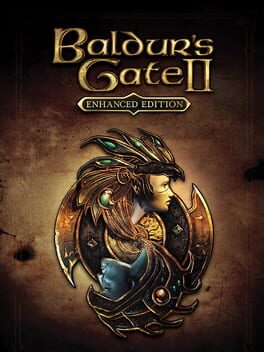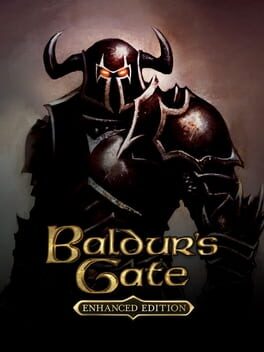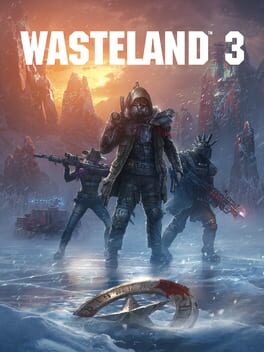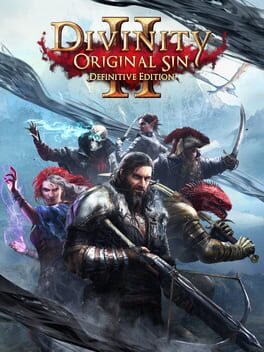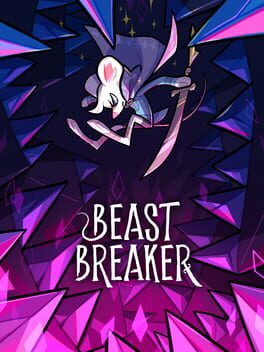Unicycles
Weird feeling. Despite this being genuinely one of the best games I've ever played, I was worn out in the final 2 chapters. Perhaps because I'd absolutely binged through BG1 before this, or perhaps the string of dire charms and late-game punishing nonsense...I cannot say.
I wouldn't mind playing through again in a few years, but the main thing stopping me would be the lack of transparency on some things. Not being able to mouseover a wizard to see what he's casting/is buffed with was always a pain. Similarly, being able to cleanse debuffs "sometimes", but not others just felt, blegh, frustrating.
Despite that, I LOVE how much STUFF there is here. The whole world is designed like an actual living world that doesn't hold you by the hand. It's full of danger and amazing things to discover. I'd estimate that I've missed about half of the game's content which just blows my mind. It's huge and varied and filled with so much greatness.
I can truly see why people consider BG2 the peak of CRPGs. Bring on BG3!
I wouldn't mind playing through again in a few years, but the main thing stopping me would be the lack of transparency on some things. Not being able to mouseover a wizard to see what he's casting/is buffed with was always a pain. Similarly, being able to cleanse debuffs "sometimes", but not others just felt, blegh, frustrating.
Despite that, I LOVE how much STUFF there is here. The whole world is designed like an actual living world that doesn't hold you by the hand. It's full of danger and amazing things to discover. I'd estimate that I've missed about half of the game's content which just blows my mind. It's huge and varied and filled with so much greatness.
I can truly see why people consider BG2 the peak of CRPGs. Bring on BG3!
I posted previously about trying to play Baldur's Gate 2 but struggling with the age of the game. I found BG2 slow, confusing, dated, and did I mention [b]confusing?[/b] I put it down for some time but decided to start reading up on the Advanced Dungeons and Dragons 2 rules during my commute to and from work. This gave me the foundation I needed to understand what was happening under the hood. I started a beginner-friendly fighter/cleric as advised by Reddit and the Beamdog forums. I tried again...and it was better. I tried the next night, and [i]oh my god[/i], it clicked! It's still an outdated, confusing system, but it made sense!
Let me explain how unintuitive the systems can be briefly...
THAC0 is your chance to hit against an enemy with 0 armour class. THAC0 = 10 therefor means you roll a d20 dice and will hit on 10+ (50% chance). You subtract the enemy AC from this, so THAC0 = 10 rolling to hit AC = 5 means you hit on 10 - 5 = 5. This means that a [i]lower[/i] AC is better than a higher one which is unintuitive for people familiar with modern RPG design. Armour isn't additive, so wearing a full plate armour sets your AC to 1 (but this differs based on piercing, crushing etc. damage which isn't immediately obvious).
Now for the absurd part. If that plate armour is enchanted with a +2 to AC, you'd expect it to be worse. We want a [i]lower[/i] AC, right? Well...The +2 to AC indicates that it's a buff, so it [i]actually[/i] means it's a -2 to AC. Okay, so +(stat) on our gear is [i]lowering[/i] our stats, which is great! But what about the +5 HP on that same piece? Well, that doesn't count and it is just a pure addition. Our 20 HP fighter now has -2 to AC, but +5 to HP which is actually very strong at early levels. It's just communicated so poorly and does not help onboard new players at all.
With all of that (mostly) understood, I quickly poured 25 hours into BG2 and started to need [i]more.[/i] Realising that this was such a special gaming experience, I decided to put my playthrough on hold and start at the beginning with Baldurs Gate 1; I wanted to do it the right way, and understand all of the back story and characters.
Knowing arcane magic was giving me trouble in BG2, I decided to throw caution to the wind and roll a mage. Best way to learn is by doing, right? I was immediately confronted by the age of the game. Despite it being "enhanced", it still felt considerably more dated than BG2. However, it's shocking how quickly those feelings melt away when you start playing. There is SO much to discover, and it's essentially a zone-based open-world game. There were way more recruitable companions than I expected, and the pool of spells I could find, try to learn, and eventually kill my party casting was incredible! Build diversity is through the roof, party composition feels limitless (I ended up choosing to forgo the 6-person max and focus on a smaller team which would earn more EXP, totally viable!).
The story was [i]fine[/i], maybe a little predictable but it had some nice layers. Party members were far less fleshed out than BG2, but it was the mechanical depth that I was playing for so I did not mind. I played through on "core" settings, which are 1 step up from normal (normal toning down the default DnD rules to better fit a videogame). It felt like a good difficulty with the occasional death-by-dice. Because you start at level 1, there is a lot more variance in how fights play out - sometimes it just takes one lucky hit for you or an enemy to be killed, and both of you will be missing a [i]lot[/i] until endgame. I actually think I prefer this over BG2, because little upgrades matter so much more; you scour each area for resources, and a simple +1 sword can be a huge upgrade because you can actually [i]hit[/i] things with it. Now imagine how I felt when I reached my higher tiers of spellcasting and was getting 3-4 100% accurate magic missiles per cast!
My only real issue now is how these games don't let you view enemy stats/buffs/spells. I'd love to know exactly what I need to roll to hit (for now I just have to make a guess based on my rolls). I'd also like to be able to see exactly which buff the pesky mage has cast so I can learn how to debuff it. There's a certain charm in fighting the unknown and learning as you go, but I think this can still be done while being a tad more transparent about the game mechanics and not requiring me to keep a wiki open while I play. But with that being said, I'll take this intelligent, mechanically deep system over modern Bioware simplicity any day of the week.
I've imported my mage and cool gear into BG2 and am excited to start fresh. I've already noticed some very cool references to the first game, some of which hit me a hell of a lot harder than my first time through the intro. However, I need a little break before soldering on.
I can see why this series is so highly regarded, BG1EE was one of the best RPG gaming experiences I've ever had.
Let me explain how unintuitive the systems can be briefly...
THAC0 is your chance to hit against an enemy with 0 armour class. THAC0 = 10 therefor means you roll a d20 dice and will hit on 10+ (50% chance). You subtract the enemy AC from this, so THAC0 = 10 rolling to hit AC = 5 means you hit on 10 - 5 = 5. This means that a [i]lower[/i] AC is better than a higher one which is unintuitive for people familiar with modern RPG design. Armour isn't additive, so wearing a full plate armour sets your AC to 1 (but this differs based on piercing, crushing etc. damage which isn't immediately obvious).
Now for the absurd part. If that plate armour is enchanted with a +2 to AC, you'd expect it to be worse. We want a [i]lower[/i] AC, right? Well...The +2 to AC indicates that it's a buff, so it [i]actually[/i] means it's a -2 to AC. Okay, so +(stat) on our gear is [i]lowering[/i] our stats, which is great! But what about the +5 HP on that same piece? Well, that doesn't count and it is just a pure addition. Our 20 HP fighter now has -2 to AC, but +5 to HP which is actually very strong at early levels. It's just communicated so poorly and does not help onboard new players at all.
With all of that (mostly) understood, I quickly poured 25 hours into BG2 and started to need [i]more.[/i] Realising that this was such a special gaming experience, I decided to put my playthrough on hold and start at the beginning with Baldurs Gate 1; I wanted to do it the right way, and understand all of the back story and characters.
Knowing arcane magic was giving me trouble in BG2, I decided to throw caution to the wind and roll a mage. Best way to learn is by doing, right? I was immediately confronted by the age of the game. Despite it being "enhanced", it still felt considerably more dated than BG2. However, it's shocking how quickly those feelings melt away when you start playing. There is SO much to discover, and it's essentially a zone-based open-world game. There were way more recruitable companions than I expected, and the pool of spells I could find, try to learn, and eventually kill my party casting was incredible! Build diversity is through the roof, party composition feels limitless (I ended up choosing to forgo the 6-person max and focus on a smaller team which would earn more EXP, totally viable!).
The story was [i]fine[/i], maybe a little predictable but it had some nice layers. Party members were far less fleshed out than BG2, but it was the mechanical depth that I was playing for so I did not mind. I played through on "core" settings, which are 1 step up from normal (normal toning down the default DnD rules to better fit a videogame). It felt like a good difficulty with the occasional death-by-dice. Because you start at level 1, there is a lot more variance in how fights play out - sometimes it just takes one lucky hit for you or an enemy to be killed, and both of you will be missing a [i]lot[/i] until endgame. I actually think I prefer this over BG2, because little upgrades matter so much more; you scour each area for resources, and a simple +1 sword can be a huge upgrade because you can actually [i]hit[/i] things with it. Now imagine how I felt when I reached my higher tiers of spellcasting and was getting 3-4 100% accurate magic missiles per cast!
My only real issue now is how these games don't let you view enemy stats/buffs/spells. I'd love to know exactly what I need to roll to hit (for now I just have to make a guess based on my rolls). I'd also like to be able to see exactly which buff the pesky mage has cast so I can learn how to debuff it. There's a certain charm in fighting the unknown and learning as you go, but I think this can still be done while being a tad more transparent about the game mechanics and not requiring me to keep a wiki open while I play. But with that being said, I'll take this intelligent, mechanically deep system over modern Bioware simplicity any day of the week.
I've imported my mage and cool gear into BG2 and am excited to start fresh. I've already noticed some very cool references to the first game, some of which hit me a hell of a lot harder than my first time through the intro. However, I need a little break before soldering on.
I can see why this series is so highly regarded, BG1EE was one of the best RPG gaming experiences I've ever had.
2020
Wasteland 3
I was obsessed. I think I managed the whole 40 hours in about a week?
Story was a bit juvenile at times and everything had a bad moral implication so nothing felt too important. On the other hand, when the jokes landed, I got a good chuckle out of the game quite frequently! I laughed my ass off when I encountered a giant goat from hell after 30 hours, because I'd picked the goatkiller background for my main character:
Nobody believes you, but you know what you saw. A giant red goat, standing over your mother's body, freaky golden eyes glittering in the night. Goats aren't normal, just listen to 'em! You're going to kill every goat you can, draw out that Monster Goat, and this time, you'll be ready. Bleat, bleat, motherfucker.
I thought this was just silly flavour text, but no! It gives you a rare chance to encounter the goat and get your revenge! Bloody incredible.
Combat and character-building was just amazing. Streamlined, but including everything you'd want for a smart tactical RPG. Level-ups and new equipment came at a very fast pace, and all the little armour mods, weapon mods, and craftable combat tools made me feel like I'd made my own unique party by the end.
I played on 'hard' (ranger) with permadeath which felt like a very balanced difficulty, though the final 2 areas were a bit of a breeze once all of my builds came together! Satisfying!
Unfortunately, it suffered a few annoying bugs. I'd regularly see the game drop to <10FPS seemingly at random, requiring a restart to fix the issue. I'd also have party members randomly get angry with me and permanently leave the party after some fights. This was a huge pain in the butt because I'd have to reload entire encounters just so all of my equipment/skills/items invested weren't lost to the whims of the game's code.
Looooved this game. Will be continuing my foray into crpgs with Pathfinder Kingmaker next! It looks VERY dense, so wish me luck!
I was obsessed. I think I managed the whole 40 hours in about a week?
Story was a bit juvenile at times and everything had a bad moral implication so nothing felt too important. On the other hand, when the jokes landed, I got a good chuckle out of the game quite frequently! I laughed my ass off when I encountered a giant goat from hell after 30 hours, because I'd picked the goatkiller background for my main character:
Nobody believes you, but you know what you saw. A giant red goat, standing over your mother's body, freaky golden eyes glittering in the night. Goats aren't normal, just listen to 'em! You're going to kill every goat you can, draw out that Monster Goat, and this time, you'll be ready. Bleat, bleat, motherfucker.
I thought this was just silly flavour text, but no! It gives you a rare chance to encounter the goat and get your revenge! Bloody incredible.
Combat and character-building was just amazing. Streamlined, but including everything you'd want for a smart tactical RPG. Level-ups and new equipment came at a very fast pace, and all the little armour mods, weapon mods, and craftable combat tools made me feel like I'd made my own unique party by the end.
I played on 'hard' (ranger) with permadeath which felt like a very balanced difficulty, though the final 2 areas were a bit of a breeze once all of my builds came together! Satisfying!
Unfortunately, it suffered a few annoying bugs. I'd regularly see the game drop to <10FPS seemingly at random, requiring a restart to fix the issue. I'd also have party members randomly get angry with me and permanently leave the party after some fights. This was a huge pain in the butt because I'd have to reload entire encounters just so all of my equipment/skills/items invested weren't lost to the whims of the game's code.
Looooved this game. Will be continuing my foray into crpgs with Pathfinder Kingmaker next! It looks VERY dense, so wish me luck!
When I started playing Dungeons and Dragons, I was the Dungeon Master for our group. I did a lot of research on how to be a good DM and help my players have the most fun; the biggest piece of advice I received was "never say no". A big part of the fun in roleplaying is the freedom to do whatever you want, and a good DM should facilitate that.
Divinity Original Sin 2 is exactly that. This game gives you an incredibly varied gameworld and lets you do whatever you please. It's shockingly open-ended and expects you to come up with interesting solutions to problems. There's no wrong way to play (except maybe playing this like your typical linear RPG!) so you can devise incredible combos that feel like you're breaking the game, do quests out of sequence, or feel like you're playing in a way that opposes what the developer's intended. This is all an illusion, because the intended way to play IS to think outside the box and break rules.
A possible downside to this freedom is the difficulty of the game when on its default setting. It took me many hours to get used to what combat requires, and the min-maxing required may put some people off the game. While there are easier difficulty settings, learning the intricacies of combat and character building is immensely satisfying and worth putting the effort into understanding. Because the game is so open, you'll often find encounter balance varies constantly; some fights will be ridiculously easy while others will take 4 or 5 attempts. It comes with the territory.
As for the quick pros and cons:
Pros
+ Best strategic RPG combat system I've ever played (grumbles about mixed armour aside)
+ Flexibility is incredible, it feels like the game wants you to break it and that's so much fun
+ Very cool lore, I particularly loved the elves being able to eat body parts to gain their memories
+ Classes that feel unique, and can be mixed freely. My best tank was a necromancer/mage/hydro mix, while my summoner was a high INT melee prodigy
Cons
- Mixed physical/magic armour system starts to feel restrictive despite being interesting at the start. I had to respec to almost pure physical damage/spells to make progress
- Final chapter is a huge difficulty spike with very few places to level up, I had to scour a small zone for non-combat quests while always getting ambushed and having to reload
- Despite being SO open, it is somewhat level gated and can feel like you don't truly have all of the options the game makes you think you do
- Final fight was busted. I had a pretty well optimised team and I just couldn't make progress; I'd get killed before I could even take my turn.
So all in all it was an incredible experience. I very rarely stick with games this long, so the positives very much outweigh the negatives (and the beauty about playing on PC is that you can tweak some things if you start to feel any friction that's truly getting in the way of your enjoyment)
Divinity Original Sin 2 is exactly that. This game gives you an incredibly varied gameworld and lets you do whatever you please. It's shockingly open-ended and expects you to come up with interesting solutions to problems. There's no wrong way to play (except maybe playing this like your typical linear RPG!) so you can devise incredible combos that feel like you're breaking the game, do quests out of sequence, or feel like you're playing in a way that opposes what the developer's intended. This is all an illusion, because the intended way to play IS to think outside the box and break rules.
A possible downside to this freedom is the difficulty of the game when on its default setting. It took me many hours to get used to what combat requires, and the min-maxing required may put some people off the game. While there are easier difficulty settings, learning the intricacies of combat and character building is immensely satisfying and worth putting the effort into understanding. Because the game is so open, you'll often find encounter balance varies constantly; some fights will be ridiculously easy while others will take 4 or 5 attempts. It comes with the territory.
As for the quick pros and cons:
Pros
+ Best strategic RPG combat system I've ever played (grumbles about mixed armour aside)
+ Flexibility is incredible, it feels like the game wants you to break it and that's so much fun
+ Very cool lore, I particularly loved the elves being able to eat body parts to gain their memories
+ Classes that feel unique, and can be mixed freely. My best tank was a necromancer/mage/hydro mix, while my summoner was a high INT melee prodigy
Cons
- Mixed physical/magic armour system starts to feel restrictive despite being interesting at the start. I had to respec to almost pure physical damage/spells to make progress
- Final chapter is a huge difficulty spike with very few places to level up, I had to scour a small zone for non-combat quests while always getting ambushed and having to reload
- Despite being SO open, it is somewhat level gated and can feel like you don't truly have all of the options the game makes you think you do
- Final fight was busted. I had a pretty well optimised team and I just couldn't make progress; I'd get killed before I could even take my turn.
So all in all it was an incredible experience. I very rarely stick with games this long, so the positives very much outweigh the negatives (and the beauty about playing on PC is that you can tweak some things if you start to feel any friction that's truly getting in the way of your enjoyment)
2021
15 hours played, "finished" to the best of my ability. I believe there is an additional story area, but nothing further will unlock. I could spend some more time trying to "unglitch" the progression, but I've had my fill after a fairly good chunk of time with it and feel satisfied. Oh well!
A gorgeously cozy game with some real meat on its bones. "Battle Peggle" doesn't appropriately convey just how much nuance there is to tackling each Mosaic Beast, but that's the best descriptor I have. The options you have available are shocking, with each of the weapon types playing completely unique from each other; mix-n'-match parts only further the variety!
There are a lot of fun ideas here, and most of them work. I grew tired of the tracking aspect of the game despite finding it initially very interesting, I also enjoyed the charming characters but found myself skimming over their dialogue to get to the gameplay. Gameplay itself was immensely satisfying, but I eventually settled on a consistent (and perhaps too powerful) hammer setup that led to me engaging very little with the various beast types. Finally, I should mention that the framerate started to drop in the later portions of the game.
Overall I think this is a massively underappreciated game that is more than the sum of its parts. The Peggle/Pinball style of bouncing your character around the screen just feels SO good, but layering some crunchy RPG mechanics over the top kept me coming back for more. I appreciate the storytelling, but it wasn't why I was playing the game.
So despite a game-breaking bug, I still got 15 hours of joy out of Beast Breaker and would heartily recommend it.
A gorgeously cozy game with some real meat on its bones. "Battle Peggle" doesn't appropriately convey just how much nuance there is to tackling each Mosaic Beast, but that's the best descriptor I have. The options you have available are shocking, with each of the weapon types playing completely unique from each other; mix-n'-match parts only further the variety!
There are a lot of fun ideas here, and most of them work. I grew tired of the tracking aspect of the game despite finding it initially very interesting, I also enjoyed the charming characters but found myself skimming over their dialogue to get to the gameplay. Gameplay itself was immensely satisfying, but I eventually settled on a consistent (and perhaps too powerful) hammer setup that led to me engaging very little with the various beast types. Finally, I should mention that the framerate started to drop in the later portions of the game.
Overall I think this is a massively underappreciated game that is more than the sum of its parts. The Peggle/Pinball style of bouncing your character around the screen just feels SO good, but layering some crunchy RPG mechanics over the top kept me coming back for more. I appreciate the storytelling, but it wasn't why I was playing the game.
So despite a game-breaking bug, I still got 15 hours of joy out of Beast Breaker and would heartily recommend it.
2019
